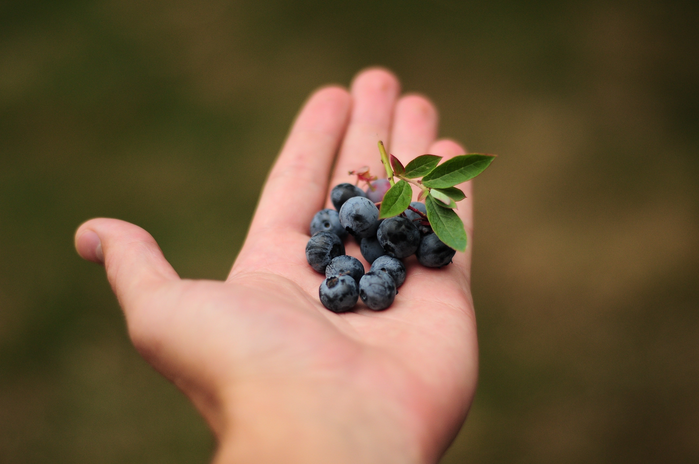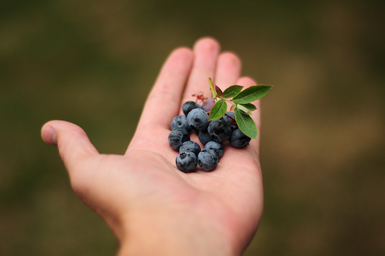Growing up, my favorite food was medium rare steak. I ate cereal every morning with skim milk, and I never met a Thanksgiving turkey that I didn’t like. I was the last person any of my friends or family would expect to become vegetarian, never mind vegan. When my best friend from home told me she had decided to go vegan, I commended her but simply said, “I’m proud of you, but that’s really not for me.” Previously, I had even tried to go vegetarian for weeks at a time. I’d crack every time, whether it was spaghetti and meatballs or a roast chicken — something would always trip me up and distract me. So it came as a surprise to my family that, weeks after returning to California from my freshman year of college, I announced that I was going to try and adhere to a plant-based diet. My mom had her qualms, my brothers teased me, and my dad thought I was going to starve myself.
The reason I decided to drastically change my diet wasn’t that I was trying to lose weight. It wasn’t because I had suddenly developed an aversion to meat. It was because I wanted to make a difference. I feel like vegetarians and vegans get a bad rep for being weak and a little “hippy-dippy” because people think they can’t handle the thought of murdering another animal. Once people knew that I was vegan, strangers in the supermarket, party guests, and family members would tell me that humans were made to eat meat and that by refusing to give my body those proteins, I was hurting myself in the long run. I never disagreed with them, although I was a little taken aback at how forward some complete strangers could be. But I never challenged them, because I knew they were right. Humans were absolutely meant to eat meat. Our bodies do need animal protein and my goal was not to ignore that advice; my goal was to challenge the system of animal agriculture that has subtle, but still large, impacts on climate change.
I confess that after watching the well-known documentary Conspiracy, I was moved to cut out all meat and dairy from my diet. I highly recommend watching this movie because it completely changed the way I thought about my role as a consumer of animal products and what I can do on my part to enact change. This documentary delved into the topic of animal agriculture and the increased amount of methane in our atmosphere due to the large concentrations of animals, specifically cows, assembled in such small and dense enclosures. It also highlighted how the meat industry is responsible for the chopping down of some of Earth’s largest forests for livestock pastures, and the unequal dispersion of resources such as land and water for the sole purpose of raising animals for human consumption. It discussed the inhumane ways that cows — female cows in particular — are raised to produce as much milk as possible by constantly impregnating them until they are too weak to carry on. At this point, they are killed to be sold as steak or hamburger meat. This process only allows female cows to live as old as five or six. In their natural habitat, cows have a lifespan of 18 to 25 years. This discrepancy is disturbing, and cows are not the only animals having their lives cut short — chickens, pigs, goats, and other animals experience shorter lifespans as well.
The last thing I want to do is to lecture about this subject because it is still something I do not have all the facts on. I am no expert; I am just someone with an opinion and some small knowledge to share. You should also know that, while I was strictly vegan for five months, returning back to campus has made that lifestyle harder to adhere to. I do consider myself vegetarian and still stay away from dairy, but after a week of feeling extremely tired and unmotivated, I realized I was lacking in some necessary proteins. Even though I try to take the supplement B-12 when I am on my period (because it is useful to replenish iron), I eat eggs now and again to compensate for the protein my body is not receiving in other ways.
I became vegan not because I didn’t like the taste of meat and dairy, but because I wanted to enact change regarding animal agriculture. However small my efforts may have been, I like to think that I did my part to spread awareness of the issues surrounding the meat industry. If you don’t agree with me, that’s completely fine. It is hard for just one person to make a true change unless they are backed by a strong (and large) following. While veganism has started to gain some footing in the modern world, it still has a long way to go until it becomes mainstream. Also, a lot of vegans and vegetarians choose that lifestyle for various reasons: some want to be healthier, some want to protest animal agriculture, and some simply don’t care for the taste of meat.
Someone once asked me if I would still abstain from meat even if I knew that the animals I was eating were raised humanely and cared for properly. And in all honesty, I probably wouldn’t. If I knew for certain that the meat and dairy industries provided humane conditions for their animals and didn’t mess with the environment in the process, I would probably be eating a cheeseburger for dinner tonight. But that’s not the case, and we still have a long way to go until that becomes the norm. So until then, I will try and do my part by sticking to a majority plant-based diet, and I will continue to educate myself on how big corporations are making changes in the business of animal agriculture.



